Елена Здравомыслова
Европейский университет в Санкт-Петербурге, Центр независимых социологических исследований (Санкт-Петербург)
Ответы на вопросы круглого стола
Как правило, в реальной полевой работе критики становятся публичными социологами. Мне кажется, что в российском контексте при нынешнем уровне институциализации социологии в России такие разделения проводить не приходится.
1. Для кого и для чего сегодня существует социология в России? Каково «публичное лицо» современной российской социологии?
Российская социология воспринимается публикой как институция производства массовых опросов общественного мнения в отношении политики и электоральных процессов. Особенно часто социолог идентифицируется как профессионал, который может прогнозировать итоги выборов, политические предпочтения населения… Для самих социологов, слава богу, это не так. Хотя прикладники готовы согласиться с таким пониманием своей социальной миссии.
2. Майкл Буравой разделяет академическую, критическую, прикладную и публичную социологию по типам основных задач и аудиторий, или потребителей социологической информации. Какое разделение труда сложилось в современной отечественной социологии? Какую бы классификацию предложили вы? Чем различаются между собой эти виды социологического труда?
Я бы чуть иначе иначе парафразировала Буравого. ПО-моему в его случае речь идет не о прикладной социологии, а о маркетинговой.. Это важно, потому что прикладные исследования могут сочетаться с любыми другими вариантами. Кроме того, мне кажется не вполне убедительным его различение критической и публичной социологии. Как правило, в реальной полевой работе критики становятся публичными социологами. Мне кажется, что в российском контексте при нынешнем уровне институциализации социологии в России такие разделения проводить не приходится. Но вообще-то уместно говорить о постнациональной фазе развития социального и гуманитарного знания сегодня (Аппадурай), а мы все про национальную самобытность…
3. Что, с вашей точки зрения, входит в сферу публичной социологии? Как бы вы определили границы этого направления?
Я не думаю, что это направление. Я думаю это роль, которую берет на себя социология. Самое ее ядро – это ориентация на гражданское общество, на социальные проблемы людей. В этой связи я считаю, что инициативные гражданские организации – это «естественные союзники» социологии. А именно они в российском контексте имеют о ней весьма смутное представление. Тем не менее они сами порождают доморощенную социологию и ее надо профессионализировать.
4. По отношению к каким (какого рода) темам/проблемам публичная социология сегодня возможна и необходима? Какие техники и методы в рамках публичной социологии больше подходят для разработки тех или иных проблем?
Задача нашей публичной социологии на сегодня- способствовать формированию профессиональной социологии (т.е. работать над стандартами социологического образования, например, или ставить под сомнение позицию тех, что считает, что социология должна обслуживать власть и в этом заключается ее публичная рольб интегрировать российскую социологии в мировой дискурс ).
5. Вправе ли социология влиять на общество, участвовать в жизни социальных групп, инициировать социальные изменения и каковы пределы этого влияния?
Вправе – не в вправе - а «влияет» как дискурс. Это вопрос о связи знания и социальной реальности. Что тут сказать? Чрезвычайно важен вопрос о том, кто представляет социологию на общественной сцене в России и в мире. Это представительство не только персонализировано (по именам), но и институционализировано. Если это Левада-Центр, то это одно влияние, а если организация, которая назвала себя ССР – то другое.
6. Можно ли говорить о своего рода «публичном повороте», о преодолении «кабинетной» работы в современной отечественной социологии (антропологии, культурологии, социальной науке в целом)? Если да, то насколько эта тенденция глубока, в какой степени затрагивает практики социологического исследования и письма? Если нет – почему?
Эта тенденция началась еще в 1970е годы после студенческой революции 1968. Связано с неомарксизмом и новыми движениями, развитием постколониальной этнологии, изменением границ социальных наук, с появлением легитимацией в социологии таких подходов как акционистское исследование и проч. По-моему назад дороги нет, хотя взаимная критика этих установок – «на объективизм» и «участие»- будет продолжаться
7. Какой вам видится роль публичной социологии ближайших десятилетий?
Думаю что для нашего социологического сообщества - это развитие гражданских инициатив, и формирование профессиональной социологии. Такой двуликий янус
(Ниже публикуется статья, которая будет опубликована в одном из ближайших номеров журнала Current Sociology, текст любезно предоставлоен автором)
Zdravomyslova Elena
‘Make Way to Professional Sociology!’ or public sociology in the Russian context
The question ‘what should be done’ always has to be answered contextually. Sociology is a scholarly exercise sens frontiéres but the situation in national sociological institutions opens different perspectives. Thus the idea of public sociology invokes different responses in different scholarly settings. ‘Cultural translation’ may give public sociology a meaning that had never been intended by its adherents. Remember how the Marx’s 11th thesis on Feuerbach reflected in Soviet ideology.
Below I bring the ongoing discussion about public sociology into the Russian scene. First I present the context of the current debate about the status of sociology in Russia. Then I map the controversy between professional and public sociology. Finally I suggest my reading of the public sociology agenda in the situation of a fight for professional sociology using the case of sociological education.
In his manifesto Burawoy formulated a clear chain of arguments: 'Global threats of third wave marketization- global civil society-global sociology’. This chain, although appealing to my personal and professional view, is in my mind still an utopian and subjective wishful construction. It unifies entities that are not holistic but split and controversial. In order to test the thesis of sociological internationalism we have to take into account local contexts. More exactly, we have to take into account three aspects of these contexts: the political opportunities for the public sociology manifesto; the situation with civil society (as 'a natural location of sociology'); and the level of institutionalization of sociology. All three contexts frame the cultural translation of the public sociology manifesto to the Russian sociological scene.
Let’s have a look at the political context and public sociology claims. The political influence on the development of sociology and its critical zest is well known. The public self consciousness of sociology comes to the forth and fades to the background in a cyclic way. Public enthusiasm of Russian sociologists was obvious in the political thaw of the 1960s and in the late 1980s, during the democratic mobilization and enthusiasm of the perestroika. It was at this time that sociologists were active in democratization, were contributing to the cognitive work of social movements, civic initiatives and political parties. At that time Russian sociologists became conscious of the intertwining of their professional and civic commitments; they discussed the issues of sociological intervention (Alain Touraine) and action research (Andrej Alekseev) as well as the moral (civic) code of the sociologist (Yadov, Zaslavskaya). The reformist political elite officially rehabilitated sociology at the very end of 1980s and recognized publicly its role in the democratic reforms of perestroika. At this time public sociology was at the heart of the professionalization project of Russian sociology. In December 1987 the All-Union Center for the Study of Public Opinion (VTSIOM) headed by Yuri Levada was established by a special decision of the Central Committee of the Soviet Communist Party. Other research institutions were established as independent structures, new educational projects in the social sciences were launched, sociological departments in the state universities were established. New research institutions claimed their autonomy from Academy of sciences and universities. Sociologists were offering their services not to the totalitarian party-state but to the reformist politicians, believing that their expertise was needed for social policy decisions or for mirroring (reflecting and informing on) public opinion.
An important aspect of the professional identity of Russian sociologists has since the 1960s been the liberal idea of optimization of state policies. Sociologists saw it as their professional task to help the power elite 'to rule the people' (narod).
Later, during the hectic and wild decline of political mobilization in the 1990s, the democratic voluntarism of president Eltsin’s rule, the contradictions of market reforms and huge economic crises made a strong impact on Russian sociology. Due to the financial crisis of scientific institutions academic sociology hardly developed, and its new developments were very much due to the support of the international agencies. Market research and political polls became very popular. For lay people, public sociology became identified with mass surveys (opinion polls on political events) or marketing research (helping to buy or to sell certain products). For the public it is clear that sociologists provide data that can be used by those who have power. Sociological servilism is oriented either on the state or on market agencies. The main purpose of both types of survey is orientation on the clients who order the research.
The sociological community has expressed its discontent with such a vision. Its ambitions are different. Most sociologists agree that their professional prestige is low, that they are manipulated and thus insecure (i.e.Filippov 2003, Ryvkina 1997, Gudkov 2004). In 2000s, in the context of president Putin’s authoritarian rule of “governable democracy”, as it is labeled by the Russian officials, sociologists split. Now the majority is working for either the markets or the state while a minority keeps itself oriented on civil society and its demands.
Civil society itself is very weak and underdeveloped. It is also diversified. The declared state strategy of social partnership aims at cooperation between state, market and civil society in solving vital social problems (Civic Forum 2000, Public Chamber 2005). This strategy could open the window for public sociology as expert knowledge helping to ground certain decisions and national programs. However, one of the consequences of this state strategy is a selectionist approach of the state towards civic initiatives and attempts to build up civil society from above. The state decides which NGOs receive support and which become public scapegoats, accused of robbery and national treason, as Putin did in his latest Annual address.
Michael Burawoy claims that sociologists take the standpoint neither of the economy nor of the state but of civil society. They explore and defend the strength of the social. But if civil society is really weak then what happens to sociology? Russian researcher Boris Gudkov sees one of the major problems of the development of the Russian sociology today exactly in the weakness of civil society and degeneration of public space (Gudkov). Many would claim that currently Russia’s civil society has no demand for the theories and concepts of self-reflection. ‘Weak civil society- insecure sociology,’ - this chain is more relevant for the Russian scene.
Now let us turn to the context of institutionalization. In 1974, S. Eizenstadt published a conciliatory article about the then ongoing debate about the crisis of sociology. Eizenstadt argued that the tension between public engagement and professional autonomy of sociology is imbedded in the development of this discipline. He also noted that the configuration of the role conflict in sociology depends upon institutional forces working within sociological community.
The level of institutionalization of sociology is crucial for the framing of its public role on the Russian scene. Since the 1990s, researchers constantly discuss the status and the prospects for Russian sociology in the Russian professional journals and try to find out whom to blame, what is to be done and where to begin the reforms.
Sociology is still a rather new discipline in the Russian academy. Twenty years ago there was sociological research but no sociological departments in the universities. Fifteen years have passed since sociology was included into the curriculum of higher education. In the last 15 years, more than 20,000 sociological diplomas were defended, and the most of them in the last seven years. The number of postgraduates in social sciences grew four times in the last 12 years, in political science – seven times. There are about 15-20 journals that present themselves as sociological (Gudkov 2004).
In 1990s we observed a rapid transformation of sociological institutions. Researchers indicate changes in the system of cultural production of sociological knowledge. Its structural affiliation and funding schemes changed. De facto, the sociological profession became close to free lancing. The field is split politically, ideologically and intellectually (Sokolov&Pogorelov). Recently Russian sociologists have subjected themselves to sociological investigation. I believe that this is a sign of growing institutionalization, of increased? visibility of certain artifacts recognized as sociological products, visibility of institutions and so forth. However, this scrutiny reveals the deficits of institutionalization and the effects of fake institutionalization. For instance, the journals exist but the level of debates is not sufficiently deep, there are very few peer reviewed articles, there are four national sociological associations but their existence is hardly visible for the professional community, and the level of sociological education has been criticised.
There is a general consensus that sociology as a profession is not sufficiently institutionalized. Russian sociologists are critical of their own competence and professionalism. Their goal is to meet the criteria of professionalism as a meand of attaining/which in their view is to gain autonomy. The lack of institutional autonomy and low density of contacts inside the community; the low level of self-organization, the dependence on the state and markets are all seen as barriers forto? institutionalization. Sociologists claim that such mechanisms as immanent theoretical and methodological critique are underdeveloped or suppressed, and there is a lack of intra-scientific gratification of the scholarly authority of a researcher. Sociology is recognized neither by the state nor by society. There is no demand for sociology is Russian society, although there are a lot of sociological problems. ‘Liberation resulted in a society, a power and an economy that wash out sociology’ (Rivkina1997). Conservative observers claim that since the 1990s we observe professional involution of Russian sociology. They say that the Russian transformation did in fact not promote an increase in the prestige of sociology. ‘Power privatized sociology. Now every branch of state power has its own analytical centre and public opinion service. There is a lot of numbers but no analysis. The people in power are not interested in social problems; they are interested in the rating of political leaders and public support of certain national programs. They have privatized certain sociological centers and use them as their analytical brains. Figures are important instruments in politicking’ (Rivkina 1997).
Sociologist Alexander Filippov observes the image of sociology in public. He as well as other researchers claim that sociological data are looked upon as information inputs or pretexts for political analysis. ‘Sociologists calculated’, ‘sociological research shows that” ” — this is how sociology is quoted in media, reflecting a superficial interest in polls has permeated TV and newspapers and this is all that the public thinks of the sociological endeavor
The self scrutiny of Russian sociology revealed ideological, institutional and paradigmatic divides in sociology which can thus not be looked upon as a holistic//unitary academic field. One divide is between those who orient themselves towards international sociological institutions and those who limit their activities to the ‘domestic ‘academic market’ with its very different criteria. Until recently there was no conflict between these two segments – they preferred not to communicate, they organized different sociological associations; they have different paradigmatic preferences (See Sokolov).
Another split is the political one. While both sides share the idea of the public role of sociology, they view it in opposite ways. Those are real antagonists; we see their conflicts and observe tensions. Lev Gudkov called the first group the Chekist trend in Russian sociology (Gudkov). They believe that the public role of sociology is to define the contours of the state policies; to construct a national idea that could mobilize society. This view on sociologists as state ideologists has a Soviet legacy. For example, the academician G. Osipov argues that in the last ten years the Russian state has devalorized sociology. And this is one of the reasons for the ongoing societal crisis in Russian society. ‘If scholarly knowledge is not integrated in the system of power relations this means that power holders govern on the basis of social mythologies’ (Osipov, p. 13). Another example is prof. V. Kuznetsov who named his article on the relevant topic ‘National purpose as a fundamental sociological problem’ (Kuznetsov). Both authors hold/implement administrative roles/positions, which partly explain their standpoint.
The second, reformist group has a different understanding of the public role of sociology. The reformists argue that professional sociological consciousness is inherently critically oriented. They believe that this criticism should be democratically reformist, that sociologists should uncover social problems and thus help to establish social balance and diminish social strain. The founders of the Soviet sociology belong to this group – among them we see Yadov, Zaslavskaya, Levada, Zdravomyslov, Ryvkina and others.
The third divide lies between those who believe that public demand is the core of the sociological profession and those who state that the academic professionalism of sociology should be grounded on political disengagement.
The first position is here presented by prof. Gorshkov, director of the Institute of Sociology of the Russian Academy of Sciences (Gorshkov 2006). Trying to justify the status of sociology he openly raises the banner of public sociology. He argues that ‘Public politics is currently giving place to public sociologists’…That ‘public sociology is a driving force for public politics’ (Gorshkov 2005). He claims that public sociologists speak a language which is understandable to lay people who together constitute civil society. The social significance of sociology is based on the trust in the research data. ‘Russian citizens today reveal low trust in declarations. They show more trust in sociology because sociologists operate with figures and not with slogans or mythology. Public sociology becomes a mirror in which society looks every day before going to work’ (Gorshkov 2005). Gorshkov identifies sociology with the information fixed in figures calculated in opinion polls. His position is that of a traditional public sociologist (Burawoy) addressing a thin public which is easy manipulated by authorities.
The second position – the idea of professional sociology per se - is clearly formulated by the younger generation of researchers who distance themselves from the public role of their profession. They argue that sociology is not limited to polls and marketing research. Its purpose is to provide society with knowledge about itself, with theories and concepts that could become resources of reflexivity that persist and distance from data (Filippov, Bikbov&Gavrilenko). They criticize the current (?) ideological character of the profession and want to distance themselves from it as much as possible. Public sociologist, they believe, undermine the professional stance of distancing and taking a ‘cool nose attitude’, public engagement results in the poverty of analysis. One of my colleagues sharing this position even claims that public activism is counterproductive for sociological professionalism (M. Sokolov). Discussing sociological professionalism they refer to Bourdieu's understanding of academic autonomy based on the criteria o self-government and self censorship, which should not be subdued to the political or market principles (Bikbov&Gavrilenko: 547).
Political reference as a zone of sociological reflexivity is deconstructed in their analysis. They criticize both the ‘chekists’ and the reformists of the previous generation because both political parties share the belief that sociology has a public commitment. For them Zaslavskaya and Osipov share a common ground of public sociologists, who see the professional not in the epistemology or history of social concepts but in its political stance: in the case of Zaslavskaya her affinity to democratic reforms and civil society, in the case of Osipov in service to truth, people, orthodoxy and state. They challenge the common claim that social problems constitute the main justification of sociological autonomy from political and administrative control (Bikbov&Gavrilenko, p. 72).
Discussion
Since the 1960s the debate on reflexive, critical or public sociology is with a certain regularity revived in the sociological community. It comes and goes in ebb and flow fashion and now it is again articulated thanks to M. Burawoy and his colleagues as part of the intellectual anti-globalism. It was in 1974 that S.Eizenshtadt made his supposedly peacemaking comments on the debate on reflexive or critical sociology that was quite hot at that time. He claimed that controversies about political involvement or neutrality of sociology are part of the profession. Growing institutionalization reinforces this debate one of the main focuses of which is ‘possibilities, limits, and problems of a "value-free" sociology’ (Eizenstadt 1974).
The self perception sociological community and its role crisis is related to its sense of internal security (Eizenstadt). Russian sociology feels insecure – market devalorizes it, state and politicians manipulate it; sociologists are described as possible spies undermining national security or as servile instruments of public policies. In the Russian context “public sociology,” has been closely associated not only with civic activism but with ideological function and dependence on the state. The younger generation of sociologists express their concern with autonomy as yardstick of professionalism. The debate about the limits of the value free sociology in Russian scholarly community is peripheral. Some feminists and neo-Marxists share the assumption that researcher’s standpoint in important way defines research strategies and results. This type of controversy imbedded in the development of the discipline is not articulated in the Russian case because sociology did not establish its professional position on the Russian intellectual scene.
I think that this radical – in the Russain context - position – rejection of public sociology – has its good reasons in the Russian context. I have attempted to describe the meanings of public sociology in the Russian context. Sociological administrators see it as the ideology which could help to recover the prestige of sociology in the eyes of authorities and media. For others, it is an international intellectual fashion redesigned by the president of ISA that will help them to survive. Still others see public sociology as a real threat for a weak sociological community. In all these interpretations there is not much concern about the linkage of sociology and civil society.
However, I believe that there is still another way to look at public sociology in the Russian context. Civic involvement in the professionalization of sociology could be the alternative interpretation of local public sociology agenda. Sociology belongs to the cultural tradition of the Russian intelligentsia looking for the answers of the old questions: ‘who is responsible’, ‘what is to be done’. The answer is: ‘start with yourself’, make decision in the concrete situation, help to make sociological education better and do not forget that Russia can become a democratic society.
There is no surprise that those Russian sociologists who fight for professional autonomy are actively engaged in direct advocacy and political activism aimed at the improvement of sociological education, sociological conscious-raising in civic initiatives and NGOs. Their publics are NGOs and students. Their understanding of politics includes improvement of sociological education in Russain and work for professionalization of sociological community.
Russian public sociologists are involved in protests when sociologists are persecuted as spies, when sociologists are beaten by the police in the March of discontent (27, April, 2007), when professionals do not have a voice for improvement of sociological education.
The Spring of 2007 was for the Russian sociological community marked by the crisis in the sociological department of the Moscow State University. A student initiative demanded to radically change the education in the department as well as the attitude toward students. In their petition they demand that ‘department’s administration to improve the quality of teaching, stop force-feeding us with ultranationalist propaganda, and ensure acceptable conditions of life and study…We demand that the curricula be changed, competent teachers be invited, students be informed about foreign exchange programs, the rude security guards be dismissed, the rigid gating system be abolished, and a minimum of basic amenities be provided. We are seeking a public meeting with the dean and rector. Our main objective is to improve the level of teaching and obtain acceptable working conditions for students, but also for the department's faculty, some of whom have expressed their support for us (www.od-group.org.).
For conflict resolution the Public Chamber organized independent commission in which 13 sociologists participate. Members of sociological community supported the student protest. ‘Reformists’ as well as those whose slogan is ‘for professional sociology’ come together to work in the commission. Academician Zaslavskaya addressed the University rector: ‘it is a positive sign that students are voicing their problems today: they are ‘growing up into true citizens’. Other members of the sociological community wrote letter of support and gave interviews addressing the critical situation in the department. However, this campaign did not touch chekists and traditional public sociologists. Hopefully the commission will help to raise the standards of sociological education in Russia. Professionalization will give chance for public sociological expertise to build trust to sociological knowledge. Organic public sociologists are involved in the dialogue with their publics trying to prevent a bureaucratic formal solution of the conflict. Members of the sociological community fighting for professionalization are in dialogue with the students of sociology and this is the true example of public sociology helping professionalization..
Literature
Gorshkov, M. 2006. Report of the director of the Institute of Sociology on the meeting with the editorial board with :Sociological Research’ Rossiskaya gazeta #4005, 27.02. 2006.
Горшков М. "Российская газета" (Федеральный выпуск) N4005, 27.02.2006. (Выступление директора Института социологии РАН проф. М.К. Горшкова на встрече с коллективом редакции журнала "Социологические исследования"
Gorshkov. M. 2005. Talk the discussion at the seminar ‘Inequality in civic and political perspectives’ 26.10.2005. http://www.gorby.ru/rubrs.asp?rubr_id=560&art_id=24809
/ Стенограмма семинара "Неравенство в гражданском и политическом измерениях", 26 октября 2005 г. / Дискуссия
Gudkov,L . On the situation in social sciences in Russia. Гудков Л. О положении социальных наук в России/ /. НЛО 2006, №77
Filippov A. 2003. Sociology as a humanitarian discipline. Филиппов А."Социология как гуманитарная дисциплина. Ресурсы и ограничения"// http://www.culturecapital.ru/university-2003/humanitarian_know/11
Kuznetsov V. National purpose as a fundamentalproblem of sociology Кузнецов В.Н. Общенациональная цель как фундаментальная проблема социологии // Социологические исследования. 2005. № 4.
Osipov , G. Russian sociology in XXI century. Осипов Г.В. Российская социология в ХХI веке // Социологические исследования. 2004. № 3. С. 3);
Bibov A.& Gavrilenko C. 2002. Russian sociology: autonomy under question mark
А. Бикбов и С. Гавриленко. Российская социология: автономия под вопросом // Логос 2002 №5-6
Eizenstadt , S. 1974. Some reflections on the crisis in sociology// Sociological Inquiry. #3
Pogorelov F. and Sokolov М. 2005 Academic markets, segments of profession and intellectual generations
Погорелов и СоколовМ. Академические рынки, сегменты профессии и интеллектуальные поколения: Фрагментация петербургской социологии.’ // «Журнал социологии и социальной антропологии», № 2 , 2005 г, с. 110-128
Ryvkina R. Paradoxes of the Russian sociology 1997
Р.В. Рывкина. Парадоксы российской социологии//Социологический журнал №4:197-207
Site of the intiative group of sociological epartment of Moscow university: http://od-group.org/forum), www.od-group.org.
понедельник, 14 января 2008 г.
Елена Здравомыслова Ответы на вопросы круглого стола
Автор:
www.jsps.ru
на
09:33
![]()
Ярлыки: Здравомыслова публичная социология круглый стол СоПСО статья
Подписаться на:
Комментарии к сообщению (Atom)

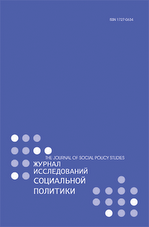
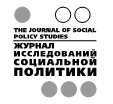




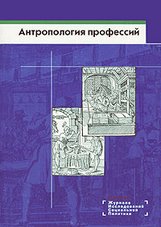



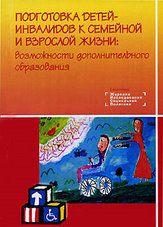
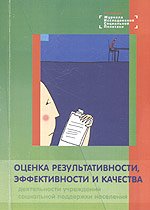
Комментариев нет:
Отправить комментарий